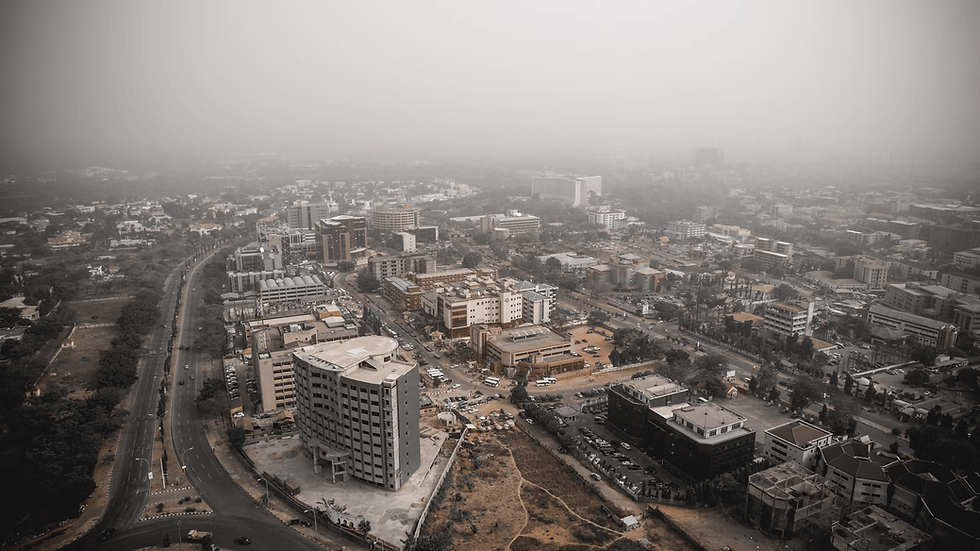Real Estate Do’s and Don’ts in Abuja, Nigeria: A Comprehensive Guide
- wobofame
- Jun 14, 2025
- 3 min read

Introduction
Abuja, Nigeria's capital, is one of West Africa’s fastest-growing real estate hubs. With its well-planned infrastructure, relative political stability, and rising middle-class population, it presents attractive opportunities for property investors, developers, and home seekers. However, the market is not without its pitfalls. To succeed in Abuja’s real estate market, you need a deep understanding of the regulatory environment, market dynamics, and local practices.
SECTION 1: REAL ESTATE DO’S IN ABUJA
1. Do Conduct Proper Due Diligence
Verify Title Documents: Always confirm the authenticity of land titles, Certificates of Occupancy (C of O), or Right of Occupancy (R of O) from the Abuja Geographic Information Systems (AGIS).
Survey Plan & Allocation: Ensure that the property has a registered survey plan and if it’s government-allocated land, that all documentation is intact.
Confirm Zoning: Check that the property is zoned for your intended use (residential, commercial, mixed-use).
2. Do Use Reputable Professionals
Engage Licensed Surveyors & Legal Experts: Work with registered surveyors, town planners, and real estate lawyers to verify land details and draw up contracts.
Hire Real Estate Agents Cautiously: Use agents registered with professional bodies like the Nigerian Institution of Estate Surveyors and Valuers (NIESV).
3. Do Understand the Abuja Districts
Familiarize yourself with the major districts:
Maitama, Asokoro, Wuse: High-end neighborhoods for luxury investments.
Gwarinpa, Lokogoma, Lugbe: Middle-income areas with growing developments.
Kubwa, Kuje, Bwari: More affordable outskirts, ideal for first-time buyers or developers targeting low-income housing.
4. Do Budget for Hidden Costs
Beyond the purchase price:
Development Levies
AGIS registration fees
Professional service fees
Agency and Legal fees (usually 5–10% of the property value)
5. Do Insist on a Written Agreement
Sales Agreement: Always document the transaction with a clearly written contract signed by both parties and witnessed by legal representatives.
Receipts: Collect receipts for every payment made.
SECTION 2: REAL ESTATE DON’TS IN ABUJA
1. Don’t Buy Land Without Visiting It
Inspect the land physically to avoid buying land that is:
Already encumbered
Under government acquisition
In flood-prone or inaccessible areas
2. Don’t Rely on Verbal Promises
Many fraudulent deals involve oral agreements or promises of "allocation soon." Always insist on paperwork and documented evidence of land ownership and history.
3. Don’t Ignore Community or Family Claims
Family/indigenous land claims are common, especially in developing areas. Even when dealing with government-allocated land, confirm that there are no outstanding communal disputes.
4. Don’t Buy Unregistered Estate Land Blindly
Many developers sell plots in unapproved estates. Always verify that the estate has:
Government approvals
Development control permissions
Proper layout plans
5. Don’t Be Pressured into Quick Deals
Scammers often pressure buyers with claims of urgent sales. Take your time to verify everything. A good deal should withstand scrutiny.
SECTION 3: HOTSPOTS & EMERGING AREAS IN ABUJA
Premium Areas (Luxury Market)
Maitama
Asokoro
Wuse 2
Ideal for diplomatic and expatriate residences.
Middle-Class Housing Hubs
Gwarinpa
Jabi
Lokogoma
Popular for both rental and ownership.
Affordable & Growth Areas
Kuje
Kubwa
Bwari
Great for long-term investment and off-plan housing schemes.
SECTION 4: REGULATORY & LEGAL FRAMEWORK
AGIS (Abuja Geographic Information Systems): Central portal for verifying land titles in FCT.
Federal Capital Development Authority (FCDA): Oversees planning and infrastructure.
Development Control Department: Regulates construction standards and approvals.
Key Legal Documents:
Certificate of Occupancy (C of O)
Right of Occupancy (R of O)
Deed of Assignment
Survey Plan
Power of Attorney (if applicable)
SECTION 5: TIPS FOR FOREIGN INVESTORS
Partner with Locals: Work with trusted Nigerian partners or legal representatives.
Know the Land Use Act (1978): All land is vested in the government; leasehold is the rule (usually 99 years).
Get Government Consent: Required for property transfer or assignment.
CONCLUSION
Abuja’s real estate market holds strong investment potential but requires careful navigation. Whether you're a first-time homebuyer, an investor, or a developer, following the do’s and avoiding the don’ts can save you time, money, and legal trouble. Always prioritize transparency, due diligence, and legal compliance in all transactions.



Comments